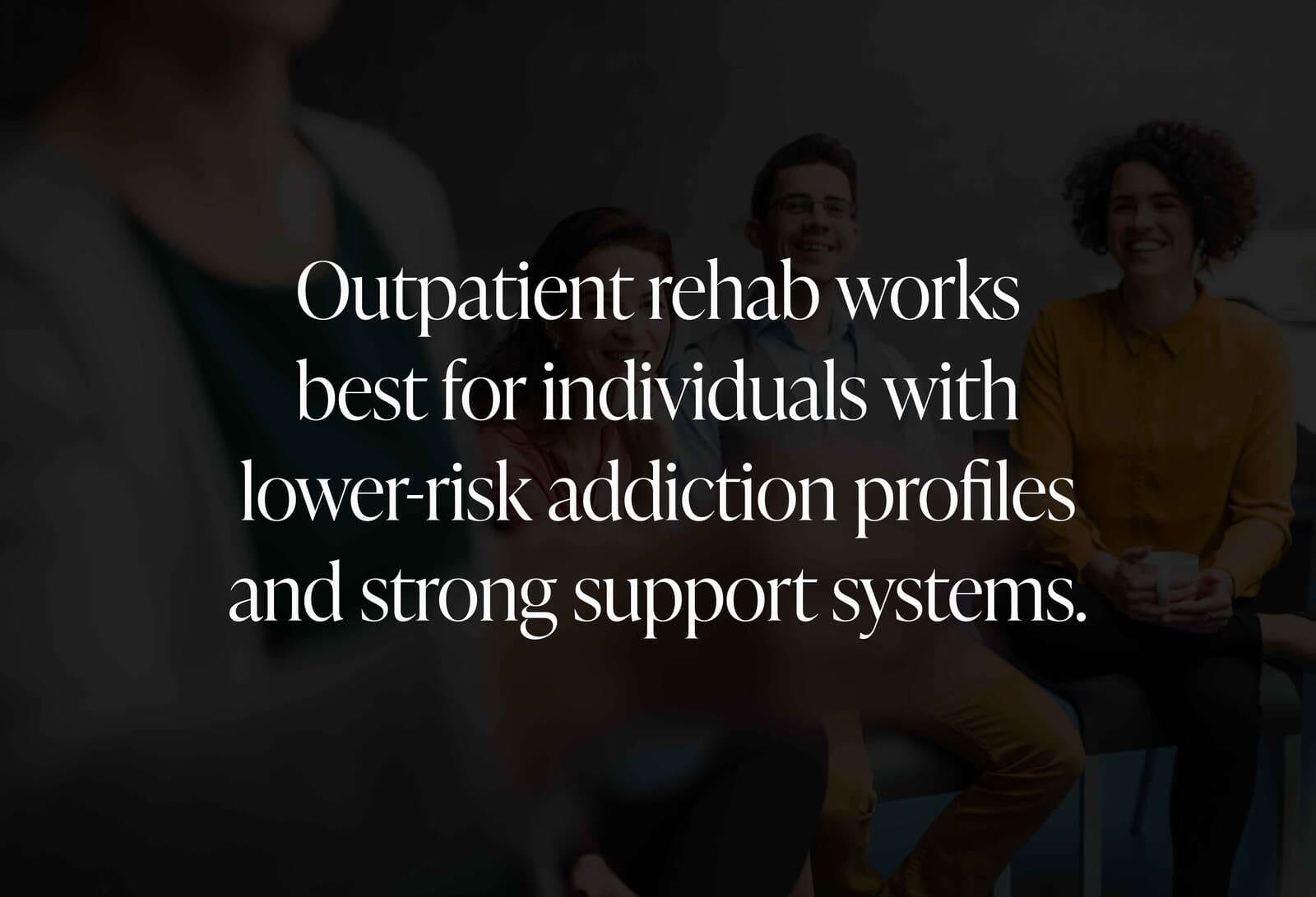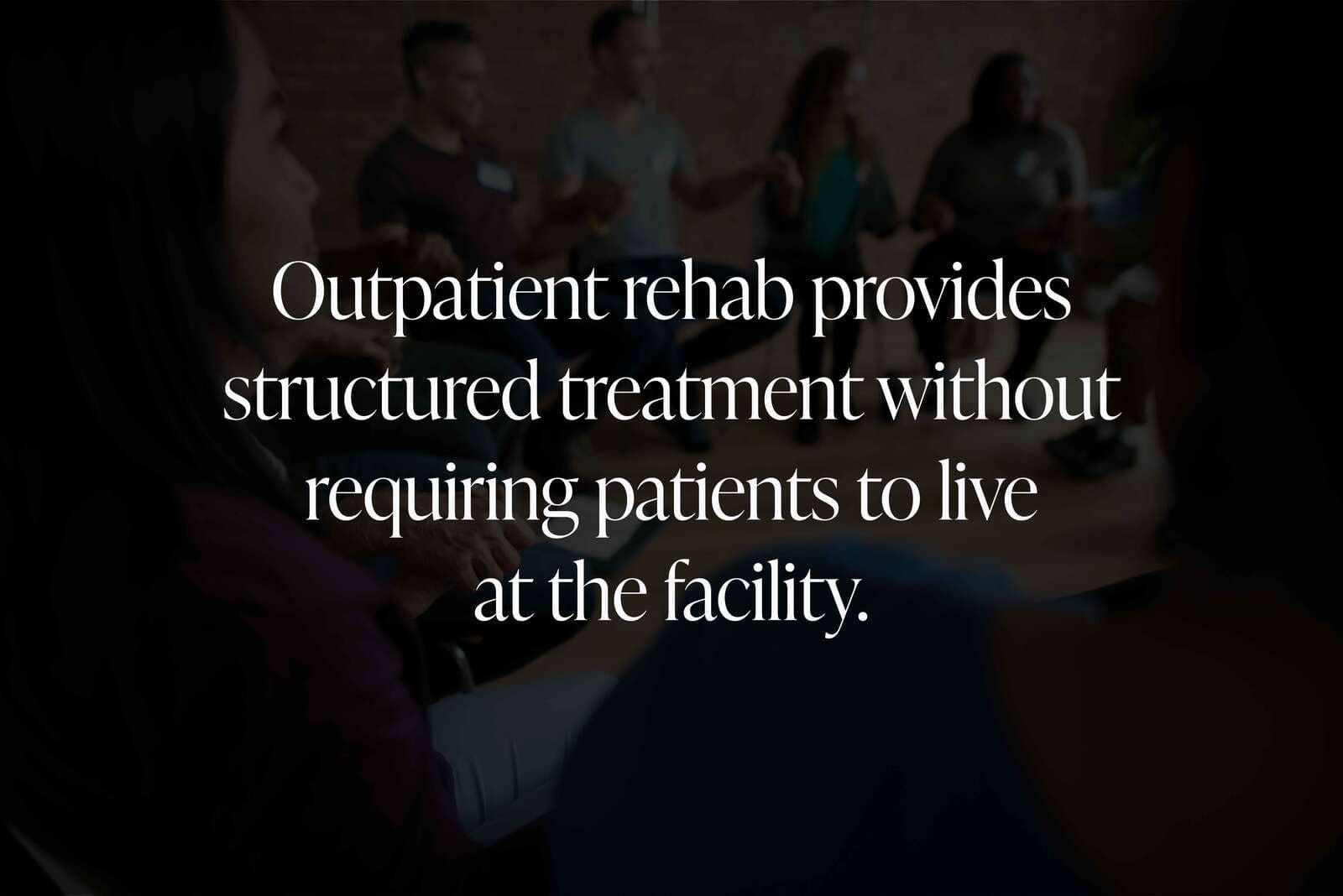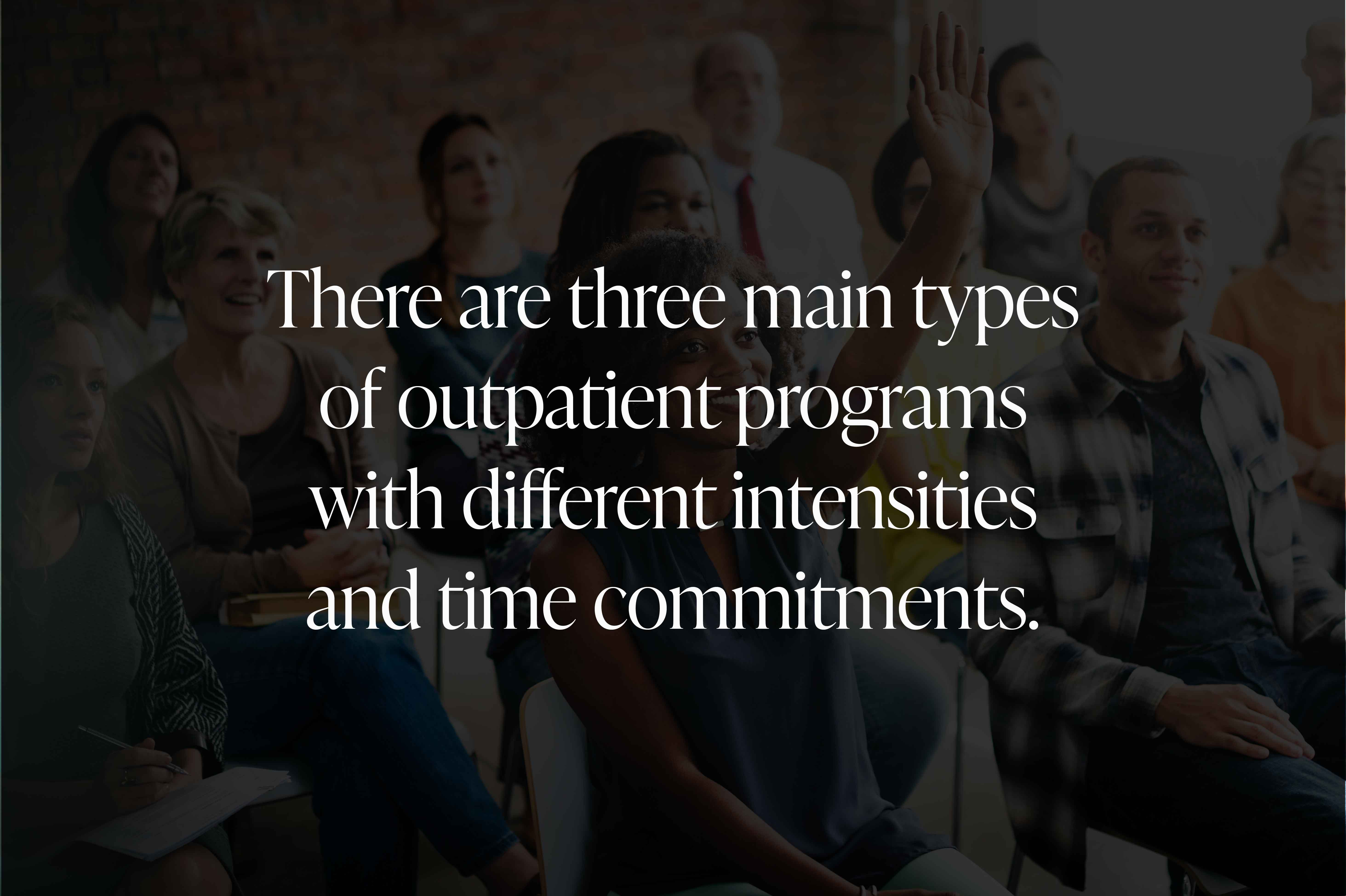Table of Contents
Outpatient rehab programs in Los Angeles provide structured addiction treatment without requiring patients to live at the facility. These programs are ideal for individuals who need continued clinical support while maintaining personal responsibilities such as work, school, or caregiving.

What Is an Outpatient Rehab Program?
An outpatient program is a non-residential treatment plan that allows patients to attend scheduled therapy sessions several times a week. Unlike inpatient rehab, which involves 24/7 care and on-site living, outpatient programs offer flexibility while still delivering evidence-based therapies.
Outpatient care can be just as effective as inpatient treatment for individuals with mild to moderate substance use disorders or those stepping down from residential care.
Types of Outpatient Programs in Los Angeles
There are three main types of outpatient programs available across Los Angeles:
Standard Outpatient Program (OP)
- 1–3 sessions per week
- Duration: 1–3 months
- Includes individual counseling and group therapy
- Ideal for maintenance or mild cases
Intensive Outpatient Program (IOP)
- 3–5 sessions per week, 2–4 hours per session
- Duration: 6–12 weeks
- Combines behavioral therapy, relapse prevention, and sometimes psychiatric support
- Often used as a step-down from residential rehab
Partial Hospitalization Program (PHP)
- 5–7 sessions per week, 4–6 hours per day
- Duration: 2–4 weeks
- Closest outpatient equivalent to inpatient rehab
- Focuses on individuals with more complex needs who still don’t require overnight care

What Therapies Are Included in Outpatient Care?
Los Angeles outpatient rehab programs offer a broad range of therapies, including:
- Cognitive Behavioral Therapy (CBT) to identify and change harmful thought patterns
- Dialectical Behavior Therapy (DBT) for emotional regulation
- Motivational Interviewing (MI) to increase patient commitment
- Family counseling and relationship repair sessions
- Medication-assisted treatment (MAT) when appropriate
Most programs also include urine testing, case management, and relapse prevention education.
Who Should Choose Outpatient Rehab?
Outpatient treatment may be the right choice if the individual:
- Has a strong support system at home
- Has completed inpatient rehab and needs a step-down
- Shows mild to moderate addiction symptoms
- Needs flexible care to accommodate work or school
However, those with high relapse risk, co-occurring mental health disorders, or no safe home environment may benefit more from inpatient care at a Los Angeles treatment center.

Benefits of Outpatient Rehab in Los Angeles
- Flexibility: Maintain employment or attend school while getting treatment
- Affordability: Less expensive than inpatient options
- Community Integration: Stay connected to real-world responsibilities while practicing new coping skills
- Continuity of Care: Seamless step-down from inpatient or detox services
Limitations to Consider
- Higher exposure to triggers at home or in social circles
- Less clinical monitoring, especially during early recovery
- Self-discipline required to attend sessions and avoid relapse
To mitigate these risks, many outpatient programs offer peer accountability groups, daily check-ins, and integrated relapse tracking.
How Does Outpatient Treatment Fit Into the Broader Recovery Journey?
Outpatient rehab is just one piece of a larger recovery ecosystem. Here’s how it intersects with other aspects of treatment in Los Angeles:
Where Can Families Get Support During Rehab in Los Angeles?
Many outpatient programs offer family therapy and education as part of the care plan. These resources help families understand addiction and create supportive environments for recovery.
Can You Visit Someone in Rehab in Los Angeles?
Yes, outpatient clients typically live at home and are free to interact with loved ones. For individuals stepping down from inpatient rehab, visitations are structured by the residential facility’s policies.
How Long Does Rehab Usually Last in Los Angeles?
Outpatient programs can last anywhere from a few weeks to several months, depending on the individual’s progress. Most IOPs run for 8–12 weeks, while OPs may last longer at a lower intensity.











